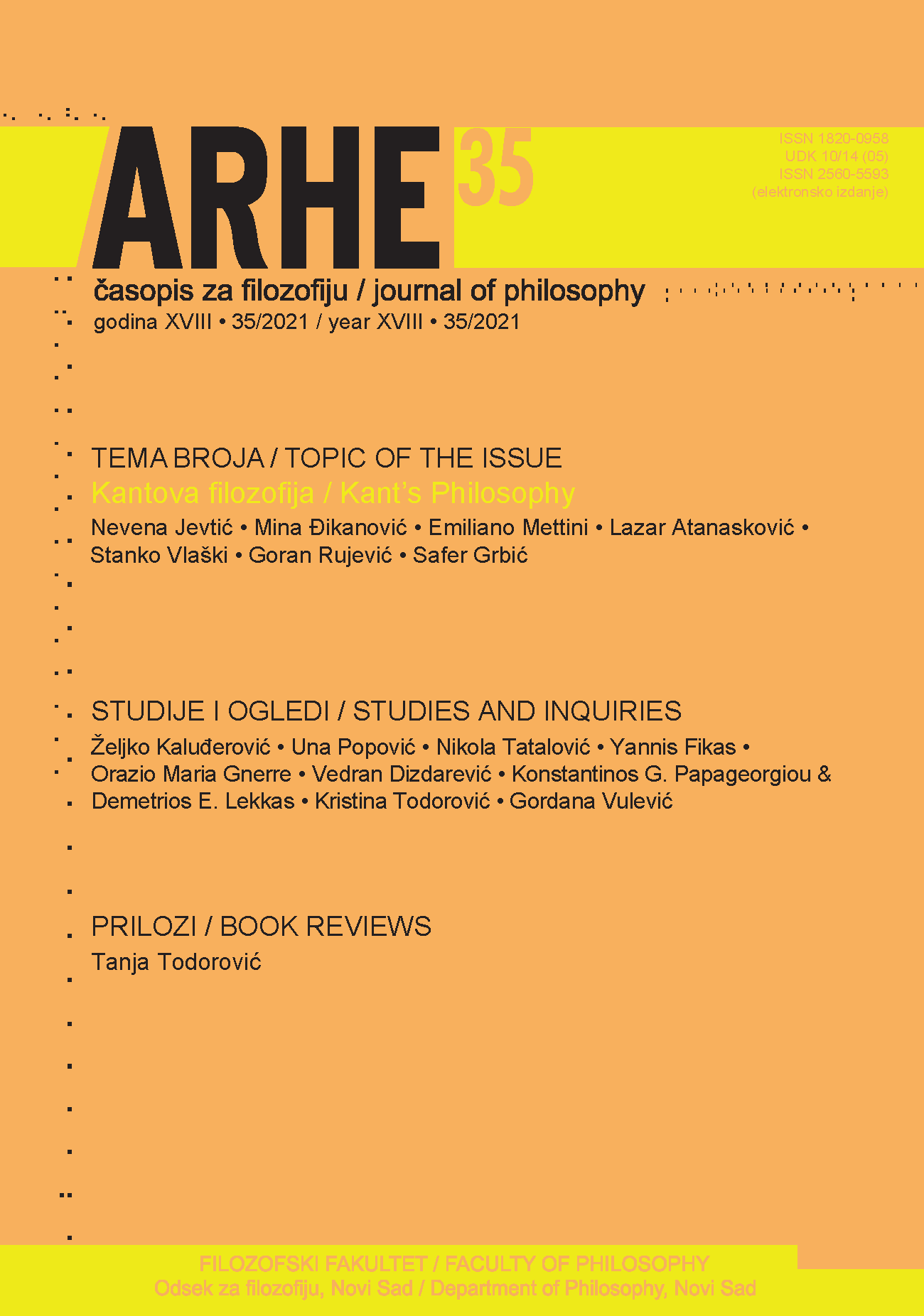Universal Principles in Political Philosophy
of Dante Alighieri and Immanuel Kant (Part I)
Universal Principles in Political Philosophy
of Dante Alighieri and Immanuel Kant (Part I)
Author(s): Emiliano MettiniSubject(s): History of Philosophy, Ethics / Practical Philosophy, Political Philosophy, German Idealism, Philosophy of History
Published by: Филозофски факултет, Универзитет у Новом Саду
Keywords: I. Kant;D. Alighieri;universalism;communitas;humanitas;freedom;politics;De Monarchia;Perpetual peace;H. Arendt;É. De la Boétie
Summary/Abstract: Ideals of universal power able to manage and solve social and ethical (religious) questions as many ways to reach the highest wisdom, and consequently, fullest well-being of humankind to reach a perpetual peace are present throughout human history so that we can find these ideals in Plato’s Republic, in Aristotle’s Politeia and other works concerning the establishment of more or less utopic “states” and commonwealth since our days. In the present essay we shall scrutinize the universalistic vision of Italian thinker Dante Alighieri (1265–1321) and the cosmopolitan idea of German philosopher I. Kant (1724–1804). We decided to analyze the political philosophy of those thinkers on the following grounds: on one hand, D. Alighieri took as the basis of his rumination Roman Empire that having as solid basis of its universalistic ideology Right of every Roman citizen (lying on the observance of religious and civil obligations), and the so-called pax romana , a theoretical ground on which D. Alighieri would create a communitas a secular led by Reason commonwealth, which might have replaced the so-called humanitas (in Augustinian understanding of such idea); and, on the other hand, I. Kant tried to explain how human self-improvement under the right use of Reason (that we understand like ethical ruling principle of humankind) can be achieved to lead human beings from the state of nature (a semi-brutal one) to the state of reason, which would have as final end a perpetual peace in a universal republic. On those bases we shall try to detect common theoretical and ideal features between D. Alighieri and I. Kant’s vision, so to prove that universalistic power is not a despotic power, but a unifying power under ethical and spiritual principles of the whole humankind.
Journal: Arhe
- Issue Year: 2021
- Issue No: 35
- Page Range: 49-78
- Page Count: 30
- Language: English

